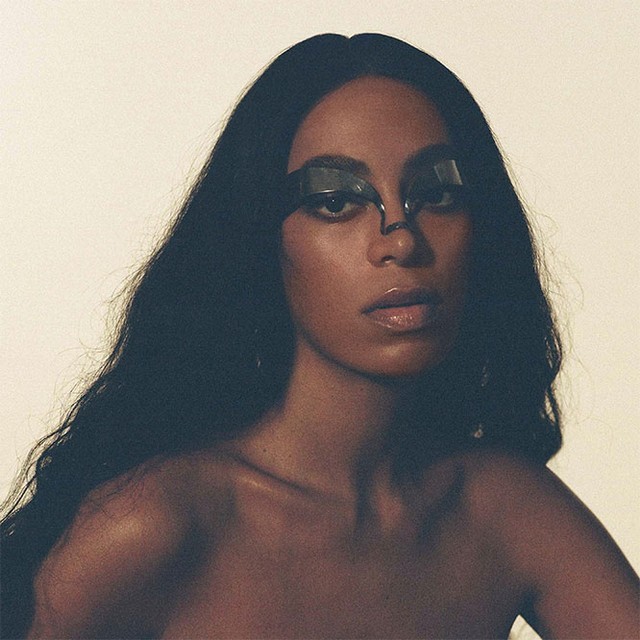Solange’s incredible previous album, A Seat at the Table, was the moment she finally got the acclaim and sales she’d long-deserved. The predominantly political themes took on a powerful poignancy following the results of the American election and the continued rise of the Black Lives Matter movement. Solange has stuck to the same release strategy with another surprise album. But that’s where the similarities end — this is a very different kind of record, thematically and musically.
ASATT was a serious and confessional record, whereas When I Get Home feels like it was designed as a distraction. It could almost be seen as a parallel to Marvin Gaye, who followed What’s Going On (a strong political statement) with the brilliant, but comparatively lyrically-lightweight, Let’s Get It On. Solange has said that on the last album she had much more to say and “with this album I had so much to feel. Words would have been reductive to what I needed to feel and express.” When I Get Home is more vibe-based, with unconventional rhythms and and collages of different synths and keyboard as the main focus.
One of the most noticeable aspects of this album is the brief track lengths, as well as the fragmented song structures. Last year, Earl Sweatshirt, Mitski and Tierra Whack all made great records featuring short songs. These songs hit hard, even though Solange flitters through ideas with a stream-of-consciousness-styled flow.
ASATT began with ‘Rise’, where Solange repeated one phrase over and over. Here she sets a template for the album using similar repetition of , “I saw things I imagined”. After a minute her voice floats away and turns into a gorgeous soundscape of dazzling keyboards. It’s somewhere between 70s Stevie Wonder and the beginning of Daft Punk’s ‘Touch’.
It’s clear by ‘Down With The Clique’ that this is a different record to its predecessor. Over an unsettling looped piano and a light jazzy rhythm, Solange’s voice is not in time or in tune with the music, and there is another set of repeated motifs. It’s a bold way to lead into the album, and it takes some getting used to. She’s showcased her impressive vocal range before — ‘Would’ve Been The One’ from Sol-Angel being a perfect example. — Here she uses her voice in intriguing ways, often letting it be buried in the psychedelic experiments of the music. These aren’t songs filled with hooks, but she does occasionally sprinkle the songs with catchy phrases such as the sensual repetition of, “uh-huh uh-huh you can get” in ‘Way To The Show’. The stuttering beat and use of gunshots is one of many unusual stylistic choices.
‘Almeda’ is a spacey electro-funk throwback reminiscent of Erykah Badu’s masterpiece, New Amerykah. It’s one of the few times Solange doesn’t just allude to something deeper, she’s as direct as she was on ASATT. She sings, “black baes, black days, these are black-owned things. Black faith still can’t be washed away“ as she’s accompanied by a hypnotic trap rhythm and wandering bass-line. A loose drum beat and vibrant vocal melody makes ‘Binz’ one of the catchiest songs here, although at under two minutes it possesses a sketch-like quality. ‘Sound Of Rain’ has a hazy groove as she references the moving sadness of ‘Cranes In the Sky’.he concludes “sound of rain helps me let go of the pain”. On the beautifully soft ‘Dreams’, Solange offers an emotional glimmer of hope — “sometimes I feel I’m gonna die at times, got my dreams and my eyes wide”.
The interludes on ASATT were part of the narrative to an album based around politics and black culture; here the sound effects and samples contribute more to the lucid atmospherics that make this such a weirdly compelling listen, especially on the unsettling ‘We Deal With The Freak’n’. It adds to the feeling of waking up from a night of vivid dreaming.
When I Get Home is an uncompromising and leftfield sequel to ASATT, that captures the essence of why Solange is such a singular talent. Even though her self-produced approach is lowkey and unassuming, this is a sonically fascinating record that makes sense the more you persist. Solange plays relentlessly with song conventions and melodies and avoids rehashing her previous triumphs. Her sense of artistic freedom breathes life into this deeply engaging record.




